Groups
GREEN-IT is organized in five scientific and three infrastructure groups as follows:
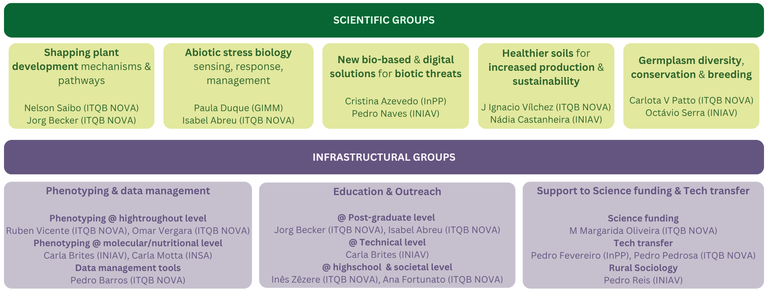
| Shaping plant development: mechanisms & pathways |


Nelson Saibo - ITQB NOVA; Jörg Becker - ITQB NOVA
CHALLENGES: To improve the productivity and sustainability of agriculture and forestry. This will require the ability to maintain plant viability and to promote the development and growth of relevant tissues/organs/products in different environments.
GROUP AIM: To understand key growth and developmental aspects of the plant and their modulation by the environment. A particular focus is placed on processes highly susceptible to climate change, such as sexual reproduction, initial plant development, and photosynthesis.
| Abiotic stress biology - sensing, response and management |


Paula Duque - GIMM; Isabel Abreu - ITQB NOVA
CHALLENGES: Agricultural sustainability and food security depend on minimizing the impact of climate change on plant productivity. This will require advancements in plant molecular physiology to optimize development and photosynthesis under abiotic stresses such as drought, extreme temperatures, high salinity or nutrient imbalances.
GROUP AIM: To advance the physiological and molecular understanding of conserved plant stress sensing and response mechanisms. This fundamental knowledge will be instrumental to define translational programs for crop breeding, driving innovation in the development of integrated, environmentally sustainable management strategies to mitigate yield loss due to abiotic stress.
| New bio-based and digital solutions for plant biotic threats |

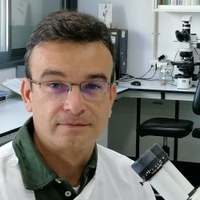
Cristina Azevedo - InPP; Pedro Naves - INIAV
CHALLENGES: These encompass various factors, such as the intricate dynamics of pests and diseases, the risks brought by emerging pathogens from climate change and global trade, pesticide resistance, limited crop genetic diversity, and the need to reduce carbon footprint while preserving ecosystem biodiversity.
GROUP AIM: To increase knowledge on plant stress sensing/response mechanisms to biotic threats and develop new bio-based and digital solutions to mitigate them. Bio-based solutions will reduce the reliance on environmentally unfriendly agrochemicals, whereas harnessing digital solutions, such as precision agriculture and remote sensing, will enable more targeted and efficient pest management.
| Healthier soils for increased production and sustainability |


Juan I Vilchez - ITQB NOVA; Nádia Castanheira - INIAV
CHALLENGES: Our main challenge is to decipher the requirements to obtain more resilient and healthy soils capable of sustainably securing crop production in adverse and changing climate scenarios, while considering the need for solutions tailored to local environments.
GROUP AIM: We will focus on the interrelations between soil structure, nutritional content, microbiome diversity, and environmental conditions to unravel the complexities of how to use soil in a more sustainable manner and significantly contribute to soil health, while maximizing plant productivity.
| Diversity, conservation and breeding of plant germplasm |

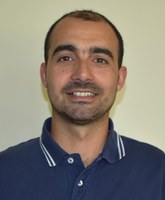
Carlota V Patto - ITQB NOVA; Octávio Serra - INIAV
CHALLENGES: The development of improved varieties requires a comprehensive understanding of diverse gene pools that must be extensively evaluated and effectively conserved in situ or ex situ. The integration of new and traditional breeding techniques to explore existing plant genetic resources and develop new varieties tailored to meet various end-users' needs and local environmental conditions is critical for innovating the Portuguese agricultural system.
GROUP AIM: Secure genetic diversity for current and future generations, while developing innovative knowledge and strategies to efficiently conserve and utilize this diversity in breeding crops for Mediterranean agriculture. We will address challenges posed by climate change and market demands, aiming to foster higher quality products
| Plant phenotyping and data management |
|
Ruben Vicente - ITQB NOVA |
@ Hightroughput level | |
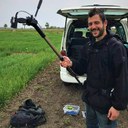 |
||
| Omar Vergara - ITQB NOVA | ||
| @ Molecular/Nutritional level | ||
 |
 |
|
| Carla Brites - INIAV | Carla Motta - INSA | |
| Data Management Tools | ||
 |
||
| Pedro Barros - ITQB NOVA | ||
CHALLENGES: Cutting-edge science requires straightforward access to state-of-the-art technological platforms and corresponding expertise. The mere existence of a good infrastructure, however, is not always sufficient to ensure that the available potential is amply explored and that outputs are maximized.
GROUP AIM: To ensure an integrated infrastructure focused on developing, analyzing, and managing data obtained from high-throughput technologies and other analytic techniques. To leverage the expertise of the team in the generation of high-throughput plant omics data, from lab to field approaches, while also ensuring efficient storage and integration of heterogeneous data and data mining solutions.
| Education and outreach - empowering the next generation |
|
Jörg Becker - ITQB NOVA |
@ Postgraduate level | |
 |
||
| Isabel Abreu - ITQB NOVA | ||
| @ Technical level | ||
 |
||
| Carla Brites - INIAV | ||
| @ Highschool and Societal level | ||
 |
 |
|
| Inês Zêzere - ITQB NOVA | Ana Fortunato - ITQB NOVA | |
CHALLENGES: "Plant blindness" is a global phenomenon. Furthermore, the social and economic importance of the agri-sector and of supporting scientific careers has not garnered sufficient attention from successive governments. These factors collectively limit the number of outstanding plant scientists available to address future challenges in the agri-food sector.
GROUP AIM: To empower the next generation of plant scientists, technicians, and farmers in Portugal to overcome challenges in crop productivity and quality, while effectively communicating our research to society and stakeholders.
| Support to science funding and technology transfer |
|
Pedro Fevereiro- ITQB NOVA |
Science Funding |
 |
|
| M. Margarida Oliveira - ITQB NOVA | |
| Tech Transfer | |
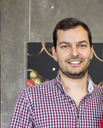 |
|
| Pedro Pedrosa - ITQB NOVA | |
| Rural Sociology | |
 |
|
| Pedro Reis - INIAV |
CHALLENGES: Navigating the complex and diverse funding systems, as well as ethical and legal frameworks, and the fast translation of results to market and society, while dealing with limited resources.
GROUP AIM: Enhance and streamline support mechanisms to diversify and maintain the Research Unit's external funding, as well as ensure value creation and provide societal insights that align with the unit's priorities.




